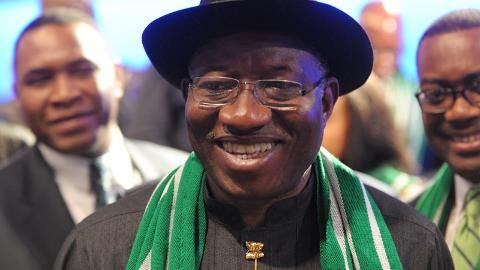 Nigerian is facing multiple challenges as the country anticipates national elections in one year's time. The incumbent President Goodluck Jonathan's Peoples Democratic Party is facing to the opposition All Progressives Congress. Maintaining the country's security leading up to as well as following the national elections will be an immense struggle to whoever leads the Nigerian government.
Nigerian is facing multiple challenges as the country anticipates national elections in one year's time. The incumbent President Goodluck Jonathan's Peoples Democratic Party is facing to the opposition All Progressives Congress. Maintaining the country's security leading up to as well as following the national elections will be an immense struggle to whoever leads the Nigerian government.
The Jonathan administration is facing an insurgency in the northeastern part of the country by an Islamist militant group aiming to destabilize the area and to make it ungovernable to the Nigerian president. Should Jonathan proceed and be reelected to another four-year term, Boko Haram will likely increase the scope of its insurgency to expand to at the least the rest of northern Nigeria.
The risk to Nigeria is not just with the Boko Haram insurgency. Militants in Jonathan's home region, the Niger Delta, have threatened that Nigeria will cease to exist should Jonathan be prevented from securing a second term as president. Niger Delta militants are alluding to attacks on the Niger Delta region's energy infrastructure that in the mid to late 2000s were significantly damaging. Hundreds of thousands of barrels per day of crude oil production were disrupted in what essentially was a bid to hold the country economically hostage and raise the Niger Delta region's political profile.
At this point neither party is yielding, making for a year of tense political campaigns that will translate into sustained violence. At the same time, however, militant violence in Nigeria faces constraints that keep militant threats in check. Boko Haram is keeping its insurgency to a limited geography and a limited target set of Nigerian civilian and security personnel. The Islamist militant group, bounded by favorable ethnic and political terrain, is not expanding its scope of operations.
The Islamist militant group, as well as the Nigerian government out of separate concerns, wants to avoid triggering attention and responses from the international community that would result in Boko Haram ultimately being defeated. Niger Delta militants have equally refrained from resuming their insurgency, in part because the militants have benefitted from President Jonathan's patronage. Criminal financial motivations aside, there is no reason for Niger Delta militants to attack Nigeria's oil and gas infrastructure so long as the region's political elite have a meaningful role in Nigerian government decision making.
It is not absolutely clear whether Jonathan will ultimately stand for reelection. What is clear at this point is that Jonathan must retain his eligibility to stand for reelection. By being eligible for reelection Jonathan retains his prominence and ability to guide Nigerian decision making. Once Jonathan submits to a successor, influence will immediately begin to shift away from the president. As is the case with many political systems around the world, winning and safeguarding political power in Nigeria is the only objective politicians believe worth fighting for. Because of these conditions, Nigeria will face a 2014 full of insecurity.
Courtesy : Stratfor (www.stratfor.com)